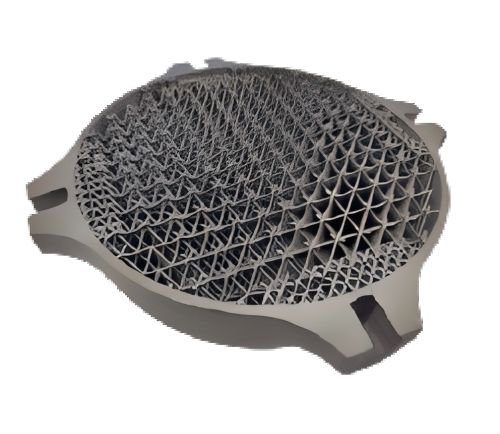Compare 3D Printing Materials
Explore and compare 3D printing materials to find the best fit for your project. From durable plastics to flexible resins, our guide highlights key properties like strength, flexibility, and surface finish, helping you choose the right material for prototyping, production, or custom parts.
Titanium
Process: SLM
Temperature Resistance, Corrosion Resistance, Strength, Lightweight
3D printed titanium alloys, represented by Ti6Al4V, feature extremely high specific strength and excellent corrosion resistance, while being lightweight and tough. They enable the creation of complex geometries and topology-optimized designs through additive manufacturing, and are widely used in aerospace, medical implants, automotive, and high-performance sports equipment. Titanium alloys also offer good high-temperature performance and biocompatibility, making them an ideal choice for manufacturing high-performance, lightweight components.
Disadvantages: Poor heat resistance (maximum 120°C); surface roughness around Ra10, with slight pits and visible layer texture.


